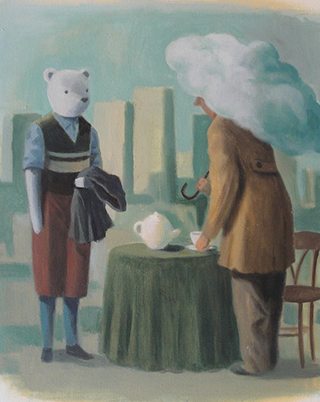I am convinced that in this uncertain world we live in, where words have been torn from their meaning because of the violence and abuse of human stupidity, writing and reading from the literary reasons exposed in this story, will continue to be the acts that justify my way through life.
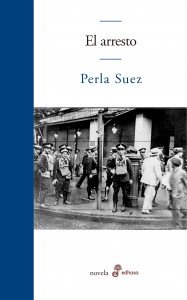
Entre Ríos, at the beginning of the 20th century. The Finz, a family of Jewish origin, work the land, they are rice farmers. The mother is dead soon, the voice of the father marks the law with rigor not without cruelty. Lucien is the youngest of the family, and soon he will lose the brother who protected him. Villa Clara, the town where they live, is small. His ambition has a destiny and a profession: Buenos Aires, to be a doctor. A forbidden love precipitates the journey.
But the city does not respond to the imagined. It’s arduous, hostile. At the dawn of 1920, the Jews are not welcome, assuming they were once. The sound of the revolution shakes the streets that Lucien uses; repression is the order of the day. A misunderstanding, if such a thing exists, places it at the center of that fabric of violence, hatred and redemption. Your life will change forever. The painful memory of their ancestors will become their consciousness. You will understand that the more one moves away from its source, the more it sinks into its roots.
The arrest: Editorial Edhasa, Buenos Aires, Argentina. ISBN: 978-987-628-438-7. First edition: April 2017. 96 pages.

It’s a crucial day and the desert witnesses.
El país del diablo: Editorial Edhasa, Buenos Aires, Argentina,
ISBN: 978-987-628-354-0.
First edition: april 2015.
192 pages.

When she moves closer, she hears the sound of metal hitting the bucket:
everything is over. Her father has tears in his eyes, and while everyone
celebrates, the girl thinks how lucky she is to have been born a female,
even though she remains silent when she want to speak, and listens to
what a girl should not hear
Letargo: Editorial Edhasa, Buenos Aires, Argentina.
ISBN: 978-987-628-336-6.
First edition: november 2014.
112 pages.

Humo rojo: Editorial Edhasa, Buenos Aires, Argentina.
ISBN: 978-987-628-173-7.
First edition: july 2012.
192 pages.

The sky is white, the cobblestone path wet. A strange calm envelops the shore.
The old woman stops, hesitates, and looks at some gourds that are hanging from the branches of a ceibo tree and swaying in the wind.
She heads to the wharf, where the ferries that take passengers to the islands are moored.
She has time to spare
La pasajera: Editorial Norma, Buenos Aires, Argentina.
ISBN: 978-987-545-487-3.
First edition: june 2008.
136 pages.

Trilogía de Entre Ríos: Editorial Norma, Buenos Aires, Argentina.
ISBN: 978-987-545-348-7.
Primera edición: febrero 2006.
280 páginas.

Complot: Editorial Norma, Buenos Aires, Argentina.
ISBN: 987-545-164-9.
First edition: april 2004.
104 pages.

El arresto: Editorial Norma, Buenos Aires, Argentina.
ISBN: 987-545-037-5.
First edition: september 2001.
90 page.

Tumba tuma retumba: Alción Editora, Córdoba, Argentina,
ISBN: 950-9402-132-3.
First edition: june 2001.
216 pages.
A shadow appeared among the trees, in the thicket. The bats shouted on the roofs of the houses, and the grass began to bend, to turn white as if it were an old man. The hares hid in their burrows, a mullite and a porcupine fled aimlessly.
Uma: Editorial Comunicarte, Córdoba, Argentina. ISBN: 978-987-602-346-7. First edition: June 2016. 32 pages. Illustrations: María Belén Sonnet.
“I hope it rains, that the golden apples and the candy confuse me with my snout, go to the park and the wind blows in my ears … A dog waits. Expect all sorts of things. But things are not always as one expects them. Sometimes they’re better!”.
I hope: The paper witch, Buenos Aires, Argentina. ISBN: 978-987-368-132-5. First edition: November 2015. 36 pages. Illustrations: Natalia Colombo.
When he fulfilled the years, his father recorded the marriage to the daughter of a well-known stone carver of the distant Vichegrado, banks of the Drina, with whom long ago the wedding had been arranged.
The girl is called Bruria and nobody has seen.
Ice flowers: Editorial Comunicarte, Córdoba, Argentina. ISBN: 978-987-602-341-2. First edition: September 2015. 32 pages. Illustrations: Claudia Legnazzi.

El hombrecito de polvo: Editorial Comunicarte, Córdoba, Argentina.
ISBN: 978-987-602-325-2.
First Edición: April 2015.
32 pages.
Illustrations: María Wernicke.

and dreamed that the moon walked barefoot,
following him.
have you ever sleep?
Asked the big bear
Yes, I sleep on the hill, but now
I’ll cross over the sea
to illuminate the night
would you like to come?
Un oso: Editorial Comunicarte, Córdoba, Argentina.
ISBN: 978-987-602-295-8.
First edition: July 2014.
32 pages.
Illustrations: Germán Wendel.

I was barefoot, stepped the wet ground,
the soft floor was sinking under my feet.
I heard a bird called me,
shoam, shoam,
and I decided to follow him.
El huemul: Editorial Comunicarte, Córdoba, Argentina.
ISBN: 978-987-602-282-8.
First edition: March 2014.
32 pages.
Illustrations: Natalia Colombo.
a man comes in, another comes out.
The first man takes off his coat,
The second puts on.
In the salon of Mr. Blum things are like this.
Blum: Editorial Comunicarte, Córdoba, Argentina.
ISBN: 978-987-602-185-2.
First edition: July 2011.
32 pages.
Illustrations: María Jesús Álvarez.

Arciboldo: Editorial Comunicarte, Córdoba, Argentina.
ISBN: 978-987-602-122-7.
First edition: July 2009.
32 pages.
Illustrations: Jorge Cuello.
One evening, the King under a tree to listen to a Little male bird who was talking to a Little female bird. The King was delightes with their chit chat until the Little male bird said:
Look down there, that’s the king’s palace. You know? With my tiny little leg I do this and I tear it down
Los tres pajaritos: Editorial Sudamericana, Buenos Aires, Argentina. ISBN: 978-950-07-2805-8. First edition: March 2007. 32 pages. Illustrations: Gustavo Aimar.

Her dad was waiting for her at the Airport at Jujuy. The flight attendant gave her a window seat and Muriel sat down there.
The plane was almost empty.
El señor de los globos: Educando Ediciones, Buenos Aires, Argentina.
ISBN: 987-1233-15-9.
First edition: August 2006.
16 pages.
Illustrations: Jorge Cuello.

El árbol de los flecos: Editorial Sudamericana, Buenos Aires, Argentina.
ISBN: 978-950-07-1018-3.
First edition: July 1995.
64 pages.
Illustrations: María Rojas.

I knew that Grandpa’s cousin would have no documents when she arrived: she couldn’t enter the country. If someone interrogated us, I was supposed to keep quiet. It was unlikely that a boy my age would be taken to jail.
Dimitri en la tormenta: Editorial Sudamericana, Buenos Aires, Argentina.
ISBN: 978-950-07-2926-0.
First edition: October 1993.
64 pages.
Illustrations: Jorge Cuello.
When it is Art, a short story calls for the reader’s sharp viewpoint, and, open to multiple interpretations, can reveal life.
La historieta ¿para qué?: Coquena Grupo Editor, Buenos Aires, Argentina.
ISBN: 9789507371202.
First edition: March 1993.
32 pages.

I never met my parents. I was brought up by uncle Fedor. When I was ten I used to cut logs from dawn to dusk for just a copek.
Memorias de Vladimir: Alfaguara, Buenos Aires, Argentina.
ISBN: 978-987-04-0635-8.
First edition: August 1991.
80 pages.
Illustrations: María Rojas.
–I’m surprised Your Majesty,that you don’t know what to be in love is! Don’t you know that when you fall in love you speak baloney?
–So that was the reason! The King exclaimed
And he inmediately called the palace guards and the opened the cage
El cuento del pajarito: Editorial Sudamericana, Buenos Aires, Argentina.
ISBN: 978-950-07-2497-5.
First edition: April 1991.
64 pages.
Illustrations: Oscar Rojas.

Mamá, papá, ¿me dan permiso?: Editorial El Ateneo, Buenos Aires, Argentina.
ISBN: 950-02-8410-3.
First edition: July 1989.
30 pages.
Illustrations: María Angélica Chamorro.

-¡Come back! Peter shouted fearing losing it.
El vuelo del barrilete: Editorial El Ateneo, Buenos Aires, Argentina.
ISBN: 950-02-8380-8.
First edition: July 1985.
28 pages.
Illustrations: María Angélica Chamorro.
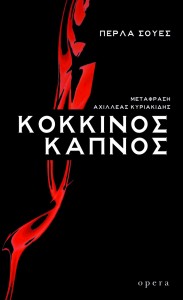
Κόκκινος καπνός: Editorial Opera, Athens, Greece. ISBN: 978-960-8397-83-5. First edition: March 2017. 184 pages. Translation of Red smoke.

The sky is white, the cobblestone path wet. A strange calm envelops the shore.
The old woman stops, hesitates, and looks at some gourds that are hanging from the branches of a ceibo tree and swaying in the wind.
She heads to the wharf, where the ferries that take passengers to the islands are moored.
She has time to spare.
Dreaming of the Delta: Texas Tech University Press, Lubbock, Estados Unidos.
ISBN: 978-0-89672-898-1.
Primera edición: Diciembre 2014.
128 páginas.
Traducción de La pasajera por Rhonda Dahl Buchanan.

Le ciel est blanc. Les pavés, mouillés. Un calme étrange effleure la rive.
La vieille s’arrête, vacille, et regarde les calebasses éventrées qui sont accrochées aux branches d’un ceibo.
Elle se dirige vers le pontón où se trouvent les bateauxbus por la traversée des passagers jusqu’aux îles.
Elle a du temps devant elle.
La passagère: Rouge Inside, Lyon, Francia.
ISBN: 978-2-918226-11-6.
Primera edición: marzo 2012.
130 páginas.
Traducción de La pasajera por Mathias de Breyne.

Znao sam da dedina rođaka dolazi bez dokumenata: da ne može da uđe u zemlju. I ako nas neko nešto bude pitao, treba da ćutim. Malo je verovatno da će uhapsiti dečaka mojih godina.
Dimitri u oluji: Pi-Press, Pirot, Serbia.
ISBN: 9788660232030.
Primera edición: 2011.
64 páginas.
Traducción de Dimitri en la tormenta por Jelena Došen.

I fiumi della memoria: Alacrán Edizioni, Milán, Italia.
ISBN: 978-88-63610-02-4.
Primera edición: Abril 2009.
175 páginas.
Traducción Trilogía de Entre Ríos por Elena Rolla y Luigi Cojazzi.

Déborah, the protagonist of Lethargy, narrates the traumatic experiences of her youth in Basavilbaso, and captures the stifling atmosphere of intolerance and repression during the 1950s. In The Arrest Lucien Finz, a young Jewish farmer, leaves the rice fields of Villa Clara to study medicine in Buenos Aires, where he becomes a victim of La Semana Trágica, the “Tragic Week” in January of 1919, when government forces arrested, tortured, and murdered striking workers and many innocent people. Complot is an intricate web of lust, deceit, murder, and power, which spans the first three decades of the twentieth century, when Great Britain influenced the growth of the Argentine nation.
The Entre Ríos Trilogy: University of New Mexico Press, Albuquerque, Estados Unidos.
ISBN: 9780826336163.
Primera edición: 2006.
241 páginas.
Traducción de Trilogía de Entre Ríos por Rhonda Dahl Buchanan.
Perla Suez was born in Córdoba, Argentina, but lived the first fifteen years of her life in Basavilbaso in the province of Entre Ríos. She is a writer and professor of contemporary literature, and graduate of the Universidad Nacional de Córdoba, Argentina.
She was the recipient of fellowships from the French government and worked at the Centro Internacional de Estudios Pedagógicos de Sèvres, and in 1998, she also received fellowships from the Canadian government.
Upon returning to Argentina in 1985, she was named a delegate to the CRILJ, (Centre de Recherche Internacional de Littérature pour la Jeunesse) and organized a group of collaborators to found the CEDILIJ (Centro de Difusión e Investigación de Literatura Infantil y Juvenil). She served as the director of the CEDILIJ for several years, and also as director of the literary magazine, Piedra Libre.
During this period, she presented lectures, panels, and seminars in Latin America and the Caribbean, some sponsored by the OAS for the promotion of reading and the difusion of high quality books. Among her publications for children and young adults are: Dimitri en la Tormenta, Memorias de Vladimir, Un golpe de buena suerte, El viaje de un cuis muy gris, and Tres pajaritos.
Her novel for young adults, Memorias de Vladimir, published in 1992, won the Premio White Ravens, awarded by the International Library of Munich, Germany in 1993. The same award was bestowed upon her children’s book El viaje de un cuis muy gris.
In 1997, she received an Honorable Mention for the Premio Mundial de Literatura Infantil José Martí in recognition of her contributions to children’s literature.
In 1998, she was invited to participate as a jury member for the Premio Internacional de Literatura Infantil y Juvenil, CIELJ, Premio Octogonal, in París, France.
In 2001, she was named a Finalist of Rómulo Gallego’s Prize for her Letargo (Norma, 2000) and in the same year she published El Arresto, and in 2004, Complot, which was a first place finalist in the Premio Internacional de Novela Grinzane Cavour – Montevideo, 2005, Fundación Grinzane Cavour, Torino, Italy.
In 2006, Letargo, El Arresto y Complot were published in one volume by the Editorial Norma, Buenos Aires, Argentina in the collection, La otra orilla, under the title Trilogía de Entre Ríos, an edition that has garnered praise in Argentina and abroad.
The publication of the Trilogía de Entre Ríos, coincided with the 2006 publication of The Entre Ríos Trilogy: Three Novels, translated by Rhonda Dahl Buchanan and published by The University of New Mexico Press in their Jewish Latin America Series.
In 2008, she won the Primer Premio Internacional Grinzane Cavour of the Fundación Grinzane Cavour, Turín, Italy and its counterpart in Montevideo for the Trilogía de Entre Ríos, which was translated to Italian by Elena Rolla and Luigi Cojazzi and published in 2009 with the title I Fiumi Della Memoria, by Alacrán Edizioni, Milano, Italy.
In 2007, Perla Suez won a Guggenheim Fellowship for the novel La pasajera, which was published in 2008 by Grupo Editorial Norma in Buenos Aires.
In 2008, the novel Dimitri en la tormenta received the Premio Destacado de ALIJA, awarded by the Asociación de Literatura Infantil y Juvenil Argentina, Sección Nacional de IBBY.
In 2008, the book Arciboldo, illustrated by Jorge Cuello, was published in Córdoba, Argentina by Editorial Comunicarte, in their collection, Vaquita de San Antonio.
In 2011 Blum, illustrated by María Jesús Alvarez, was published in Argentina by Editorial Comunicarte, in their collection Cola de ratón.
Actually it is found in press the special books El hombrecito de Polvo and Las flores de hielo in Editorial Comunicarte, Córdoba, Argentina.
Dimitri en la tormenta has been translated to Serbian by Jelena Dosen and was published by PiPress in November 2011, Belgrade, Serbia.
She received the Municipal Prize of Novel gave by the government of Buenos Aires city for Trilogía de Entre Ríos.
Dreaming of the Delta, the English version of the novel La pasajera, has been translated by Rhonda Dahl Buchanan and be published recently, in the Americas Series of Texas Tech University Press.
La pasajera has also been translated to French by Mathias de Breyne as La passagère, and was published in February 2012 by Rouge Inside, under the direction of François Collet.
Her novel for adults, Humo Rojo, published by Edhasa, Buenos Aires, Argentina in August 2012.
In 2013 Perla Suez received the Municipal Prize Glauce y Romilio by the government of Córdoba city. Humo rojo was one of the Rómulo Gallego’s Prize finalists. Besides that, the book was awarded the Argentina’s National Prize for Novel.
In 2014, Editorial Comunicarte published three books that Suez wrote for children: El huemul, Un oso, and Lara y su lobo, and her novel Letargo was released in a new edition by Editorial Edhasa. Perla Suez was invited by the Argentine Ministry of Culture as one of the 45 writers who represented Argentina at the Book Fair (Salón del Libro) in Paris in 2014.
In 2015, Perla featured two illustrated children’s books El hombrecito de polvo and Espero. Her last novel, El país del diablo, was published by Editorial Edhasa in April, and won the Sor Juana Inés de la Cruz Price, granted by the Guadalajara International Book Fair.
In 2016, she was invited to the Frankfurt Book Fair, where the translation to Greek of her novel Humo Rojo was presented.
In 2017 a new edition of El arresto came out, and a new edition of Complot is coming soon.
In March 2018 her book Espero was selected as one of the 10 best books in the world and is a candidate for the “Best children and young adults books 2018” of Banco del Libro. Also in 2018, her story book Aconcagua (Editorial Ojoreja, Buenos Aires) was one of the winners of the Editorial Projects Competition of the National Arts Fund, and will be published this year. In March she released her new novel Furia de invierno (Edhasa, Buenos Aires) and in April the special edition of Memories of Vladimir, Editorial Comunicarte, Córdoba will be released. The country of the devil was translated into English and will be published by White Pine Press, New York, USA. Currently, Perla is working on Tres mujeres, a photobook with texts and analogical photographs of her authorship.
Recent publications by Perla Suez
Letargo. Buenos Aires: Grupo Editorial Norma, Colección La otra orilla, 2000. (Novel)
El arresto. Buenos Aires: Grupo Editorial Norma, Colección La otra orilla, 2001. (Novel)
Tumba, Tumba, Retumba, Poetas de América. Córdoba, Argentina: Alción Editora, 2001. (Anthology, selection, prologue and notes by Perla Suez)
Complot. Buenos Aires: Grupo Editorial Norma, Colección La otra orilla, 2004. (Novel)
Trilogía de Entre Ríos. Buenos Aires: Grupo Editorial Norma, Colección La otra orilla, 2006. (Novel with a prologue by Guillermo Saccomano)
The Entre Rios Trilogy, Three Novels. Translated by Rhonda Dahl Buchanan. Albuquerque, New Mexico: The University of New Mexico Press, Jewish Latin America Series, 2006. (novels, with an Introduction by Ilan Stavans and Preface by Rhonda Dahl Buchanan).
Un golpe de buena suerte. Buenos Aires: Ediciones e.d.b., 2006. (short stories for children)
Memorias de Vladimir. Buenos Aires: Ed. Alfaguara, Alfaguara Juvenil, new edition, 2007. (Novel)
Dimitri en la Tormenta. Buenos Aires: Ed. Sudamericana, new edition, 2008. (Novel for young adults)
La pasajera. Buenos Aires: Grupo Editorial Norma, Colección La otra orilla, 2008. (Novel)
I Fiumi Della Memoria, Translated by Elena Rolla and Luigi Cojazzi. Milan, Italy: Alacrán Edizioni, 2009. (Novel)
El viaje de un cuis muy gris. Buenos Aires: Editorial Sudamericana, 7th ed. 2009. (Short stories for children, illustrated by Oscar Rojas, White Ravens Prize).
Arciboldo. Córdoba, Argentina: Editorial Comunicarte, 2009. (Illustrated children’s book)
El árbol de los flecos. Buenos Aires: Editorial Sudamericana, 5th ed., 2010. (short stories for children)
Tres pajaritos. Buenos Aires: Editorial Sudamericana, Colección Puercoespín, 3rd ed., 2011. (Short stories for children)
Blum. Córdoba, Argentina: Editorial Comunicarte, new edition, 2011. (Short stories for children)
Dimitri u oluji, Belgrado, Serbia: PiPress, new edition, 2011 (Novel for young adults)
La Passagère, Lyon, France: Rouge Inside, new edition, 2012 (Novel)
Humo rojo, Buenos Aires, Argentina, Editorial Edhasa, 2012 (Novel)
El huemul, Córdoba, Argentina: Editorial Comunicarte, 2014 (Illustrated children’s book)
Lara y su lobo, Córdoba, Argentina: Editorial Comunicarte, 2014 (Illustrated children’s book)
Un oso, Córdoba, Argentina: Editorial Comunicarte, 2014 (Illustrated children’s book)
Letargo. Editorial Edhasa, Buenos Aires, Argentina, 2014 (New edition of 2000 novel)
Dreaming of the Delta, Lubbock, USA, Texas Tech University Press, 2014 (Novel)
El hombrecito de polvo, Córdoba, Argentina: Editorial Comunicarte, 2015. (Illustrated children’s book)
Espero, Buenos Aires, Argentina: Editorial Comunicarte, 2015 (Illustrated children’s book)
El país del diablo. Editorial Edhasa, Buenos Aires, Argentina, 2015
El país del diablo, Vostok Publishing, Macedonia, 2018.
Furia de Invierno, Edhasa, Buenos Aires, Argentina, 2019.
The Devil’s Country, White Pine Press, Buffalo, United States, 2020. (Translated by Rhonda Dahl Buchanan)
Aconcagua, Ojoreja, Buenos Aires, Argentina, 2020.
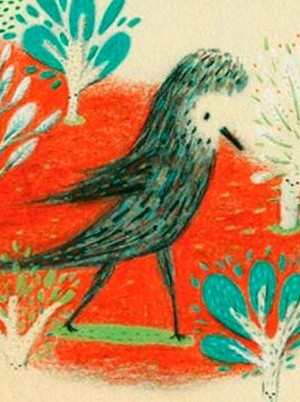
Year | 15
Sor Juana Inés de la Cruz Prize for her novel The devil’s country, Edhasa 2015. Granted by Guadalajara International Book Fair
Year | 13
Argentina’s National Prize for Novel, Humo rojo, Edhasa 2012
Municipal Prize Glauce y Romilio by the government of Córdoba city by literary trajectory.
Rómulo Gallego’s Prize finalists, Humo rojo, Edhasa 2012
Year | 12
Municipal Prize of Novel granted by the government of Buenos Aires city, Biennium 2006-2007, Trilogía de Entre Ríos, Norma 2006.
Year | 09
Distinction Prize ALIJA 2008. Dimitri en la tormenta. Granted by ALIJA (Association of Children’s Literature of Argentina), National section of IBBY (International Board on Books for Young People), at the International Book Fair Buenos Aires, 2009.
Year | 08
Grinzane Cavour-Montevideo International Award. First prize for her book Trilogía de Entre Ríos.
ALIJA Outstanding Performance Award. In the category “Rescate Editorial”.
Year | 07
Guggenheim Fellowship for her carree and to the novel La pasajera
Year | 05
Finalist in the Grinzane Cavour-Montevideo International Award, Complot, Norma 2004.
Year | 01
Finalist of Rómulo Gallego’s Prize for Letargo, Norma, 2000.
Year | 00
Finalis World Children’s Literature Award Apel Les Mestres, Barcelona, Tan lejos, tan cerca.
Year | 97
Scholarship as the Goverment of Canada as a writer.
Honorable Mention for the World Prize for Children’s Literature José Martí.
Year | 96
Scholarship French Goverment Honours Award.
White Ravens, awarded by the International Library of Munich, Germany, El árbol de los flecos, Sudamericana.
ALIJA Honour List for Illustrations 1996. Honor Figures Futur fur illustrations (France) 1996. El árbol de los flecos. Perla Suez. Illustrations: María Roja.
Year | 77
Research Scholarship in Literature, to work in Paris at International Center of Pedagogical Studies of Sèvres.
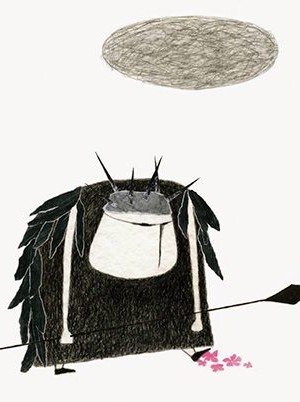
2019
Review: Winter Fury, by Perla Suez
April 21, 2019. La nación. By Daniel Gigena. – Link
Perla Suez: “Language is always a terrain of dispute”
April 18, 2019. La Tinta / Page 12. By Daniel Gigena. – Link
Writing is a place of protection
April 15, 2019. Pagina 12. By Silvina Friera. – Link
Review # 798: Sound and Fury
April 15, 2019, Solo tempest. By Adrián Ferrero. – Link
The condemned of the earth
April 14, 2019, La Prensa. By Glenda Mccoy.- Link
No Exit
April 12, 2019. Pagina 12. By Daniel Gigena. – Link
Perla Suez: “I wanted to give prominence to one of those beings that nobody cares about”
April 9, 2019. Tiempo Argentino. By Monica Lopéz Ocón. – Link
“Winter fury”
April 7, 2019. Diario de Misiones. – Link
Perla Suez: “This savage and consumerist world turns beings into beings”
April 6, 2019. Los Andes. By Ximena Sol Pascutti. – Link
“Society is hypocritical, it encloses you, it suffocates you and it does not let you be”.
April 5, 2019. BAE Business. By María Ripetta. – Link
The function is not going to change the world, but at least it helps to become aware.
April 4, 2019. Télam. – Link
An exterminating angel for the national tragedy
April 4, 2019, Revista Ñ Clarín. By Patricia Suarez.- Link
Meeting without so much harmony or consensus
April 1, 2019. Pagina 12. By Silvina Freira. – Link
Without direction or future
March 31, 2019. La Prensa. By Gustavo García. – Link
The beasts
March 31, 2019, Pagina 12. By Margara Averbach. – Link
Inclusive language, translation, internet and the uncertain future of the Spanish language: a talk with Ana María Shua and Perla Suez
March 28, 2019. Infobae. By Luciano Saliche. – Link
Perla Suez: Fiction can anything
March 24, 2019. La voz. By Diego Demarchi. – Link
Perla Suez: “Marginals teach us to see reality”
March 27, 2019. Ambito.com. – Link
The secrets of Perla Suez to write: “Literature is an imprecise territory”
March 22, 2019. Infobae. By Perla Suez. – Link
https://www.infobae.com/grandes-libros/2019/03/22/los-secretos-de-perla-suez-para-escribir-la-literatura-es-un-territorio-impreciso/?fbclid=IwAR1M-aXucQgE1Z0-zyg25gfGV0xTbUcCogzOYSNlNb5b0pm0BPcKV1JJ5I8
Key week for argentinian children’s literature
March 26, La Nación. – Link
A book by Perla Suez, illustrated by Natalia Colombo, is postulated between the ten best books in the world.
March 23, Telam. By Maria Claudia Lorenzon – Link
A book by Perla Suez is chosen between the 10 best books in the world
March 23, La Nueva Mañana. – Link
Countdown to Filba
March 11, La Voz del Interior. By Redacción VOS – Link
How do writers use the dictionary?
February 18, La Voz del Interior. By Carlos Schilling – Link
2017
Perla Suez, The arrest and History as a mirror
December 21, Hoy Día Córdoba. By Ariel Toledo – Link
Christmas special. The season’s novels. J. A. Masoliver Ródenas’s favorites
December 16, Culturas La Vanguardia – Link
The coffee grounds don’t erase words
November 12, Puntal Villa María. By Iván Wielikosielek – Link
We are X-rayed by the past, it’s what we are. Interview.
May 23, Clarín. By Daniela Pasik. – Link
“We have to paddle against the current of cultural emptying”. Interview
April 30, Tiempo Argentino. By Fernando Capotondo – Link
Family bonds. Review of Letargo.
March 28, Revista Arcadia. By Martín Franco Vélez. – Link
2016
Argentinian writers prepare to go to international fairs
September 13, Clarín. By Susana Reinoso – Link
Presence of local authors at the Buenos Aires Book Fair
April 25, La mañana de Córdoba. – Link
2015
A desert without barbarians
November 09, La gaceta UdeG. By Roberto Estrada – Link
Perla Suez presents this thursday her last book
June 03, Ciudad Equis. By Eugenia Almeida – Link
Interview with Perla Suez: fiction for the source
May 30, Los Andes. By Patricia Slukich – Link
Perla Suez: “I believe in the power of well-constructed stories”
May 25, La Nación. By Natalia Blanc. – Link
“I wanted to build a western Patagonia”
May 18 de 2015, Página/12. By Silvina Friera – Link
The desert portrayed with beauty, violence and magic of dreams
April 20, Telam. By Claudia Lorenzon – Link
“One will never achieve what you really have wanted to tell”
February 15, Revista Ñ. By María Luján Picabea – Link
2014
Perla Suez portrait: things by their name
December 11 2014, Ciudad Equis. By Eugenia Almeida – Link
“I want to emphasize in young writers from Córdoba”
March 20 2014, Ciudad Equis. By José Playo – Link
“Much more tan summer reading”
February 07 2014, Revitsa Ñ. By Perla Suez. – Link
Reading between the lines
January 2014, Revista Deodoro. By Perla Suez. – Link
2013
“Everything is based in the quality of works” About the Nationals Awards
October 1st 2013, Página/12. By Silvina Friera. – Link
Perla Suez: Argentina’s National Prize for Novel 2013
30 de septiembre de 2013, Telam Agency. – Link
2012
“Brothers by blood”, about Humo rojo (Red smoke)
October 2012, Revista Ñ. By Margara Averbach. – Link
“Disunited brothers”, about Humo rojo (Red smoke)
August 2012, adn Cultura, La Nación. By Willy G. Bouillon. – Link
“Stories of invisible beings”, about Red smoke
Interview in Ciudad X magazine, August 2012.
“Open wounds”, about Red smoke
Interview in Página/12, July 2012.
“The children of the land”, about Red smoke
Interview in Suplemento Radar, July 2012.
Perla Suez, a writer of few words
Interview in Rumbos magazine, December2011
Reference to Letargo In “Aquí América Latina. Una especulación”. By Josefina Ludmer, July of 2010. Eterna Cadencia
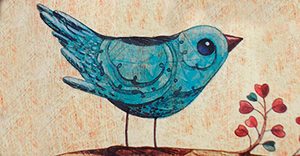
Paraná 653 P.B.
Nueva Córdoba | C.P. 5000
Córdoba - Argentina
Tel.: +54 0351 4 60 08 08
escritura@perlasuez.com.ar
